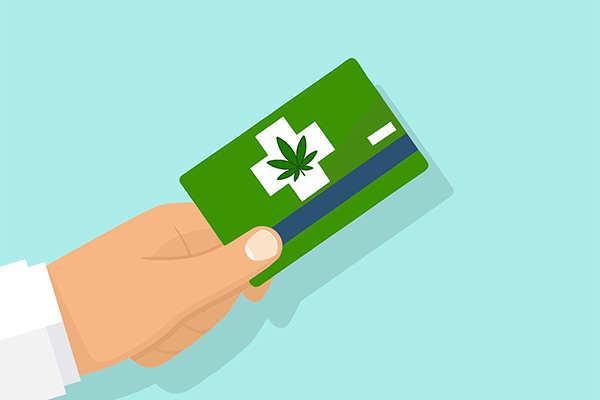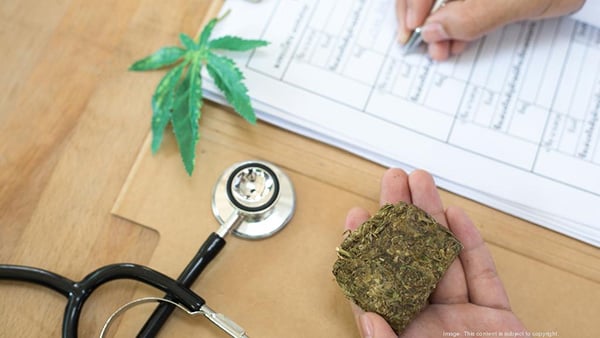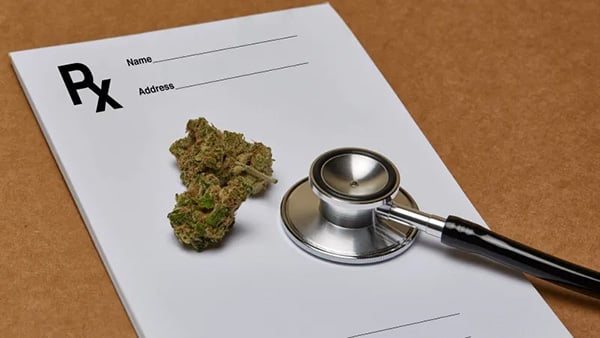What Is a Medical Marijuana Card? 9 Benefits You Need to Know

As of 2024, marijuana use in the United States has continued to rise, with significant increases in both occasional and daily consumption.
Recent data indicates that approximately 15% of Americans report smoking marijuana, reflecting a steady upward trend over the past decade.
This equates to about 50 million individuals, based on the current U.S. population estimates.
Access to marijuana depends largely on where you live. Most states have legalized medicinal use, but a growing number are legalizing recreational cannabisas well.
The benefits of medical marijuana are obvious, but what are the benefits of medical marijuana cards? Here's what you need to know.
What is a medical marijuana card ?
A medical marijuana card is a state-issued identification card that allows patients with a doctor’s recommendation to legally purchase, possess, or cultivate cannabis for medicinal purposes, even though marijuana has not undergone the standard FDA testing for safety and efficacy.
These cards are issued in states or counties where medical cannabis use is legally recognized.
To obtain a medical marijuana card, patients typically need to provide proof of residency, a recommendation from a licensed healthcare provider, and pay a fee.
The card is usually valid for up to 12 months and requires renewal, often involving another doctor's evaluation and a renewal fee.

Can you use your medical card as an ID?
There is a lot of confusion about whether a medical card can also serve as an ID.
A Medicaid card is primarily used to access healthcare services and verify eligibility for Medicaid benefits, but it is not typically considered a valid form of identification for purposes like voting, boarding a plane, or other situations that require government-issued ID.
In some cases, states may accept a Medicaid card as a secondary form of identification for specific purposes.
However, it typically does not fulfill the requirements for primary identification.
To be on the safe side, keep your driver's license or another form of identification in your wallet, as there is no guarantee that your medical card will be accepted as identification.
What States Allow Out-of-State Medical Cards in 2024?
Medical marijuana cards in the United States are currently possible to obtain in 38 states.
The process of acquiring a medical marijuana card may vary with the specific state's laws and policies.
Here are the 38 states:
- Arkansas
- Arizona
- Delaware
- Hawaii
- Louisiana
- Maine
- Michigan
- Missouri
- Montana
- Nevada
- New Hampshire
- New Mexico
- New Jersey
- Oklahoma
- Pennsylvania
- Rhode Island
- Utah/li>
- Washington D.C.
- West Virginia (terminal cancer patients only)
What States Allow Out-of-State Medical Cards in 2024?
Having a medical marijuana card doesn't automatically grant you access to purchase cannabis at dispensaries in all legal states.
However, some states have medical marijuana reciprocity laws, allowing you to use an out-of-state card to purchase cannabis legally.
Here’s a comprehensive list of states where you can buy medical marijuana with an out-of-state card under reciprocity laws.
- Arizona
- Arkansas
- Hawaii
- Maine
- Michigan
- Mississippi
- Missouri
- Nevada
- New Hampshire
- New Jersey
- New Mexico
- Oklahoma
- Puerto Rico
- Rhode Island
- Utah
- Washington, D.C.
9 Benefits of Having a Medical Card

A medical card allows you to legally purchase medicinal marijuana from dispensaries in your state.
It is the only way to legally purchase cannabis in states where recreational weed has not been legalized.
The benefits of a medical card are enormous, so it's worth taking the trouble to get one if you qualify.
Here are the key benefits of medical marijuana cards.
1.Reduce cost
Medical marijuana is often less expensive than recreational marijuana due to the difference in taxes.
Colorado, for example, imposes a 10 to 15 percent marijuana sales tax on all recreational products.
However, if you purchase medical marijuana, you will receive By taking advantage of tax exemptions and discounts offered by licensed dispensaries, cardholders can save money on their cannabis purchases.
And, in certain states, for example, New York, insurance may cover the costs associated with medical marijuana.
2. Higher holding limits
Even in recreational states, restrictions apply to how much cannabis you may have in your possession.
In California, recreational users are allowed to buy up to an ounce of marijuana per day.
By comparison, anyone with a medical marijuana card can buy up to 8 ounces a day.
So a medical cannabis card enables you to take home more marijuana than casual users, saving you trips to the dispensary.
3. Grow your own marijuana
Some states prohibit recreational users from growing marijuana at home for personal use.
So one of the main benefits of a medical marijuana card is growing your own marijuana at home.
Similarly, in Colorado, recreational users can grow up to six plants, and only three mature at the same time.
Medical marijuana users, on the other hand, can request to grow more than six plants.
4. Lower the age limit
Another reason a medical card works in your favor is that you are exempt from the usual age restrictions in many states.
States typically require customers to be 21 or older to buy marijuana from dispensaries.
However, the state medical marijuana program allows eligible patients as young as 16 to buy marijuana with the help of a registered caregiver.
5.Access to Experienced Healthcare Professionals
A medical marijuana card provides access to healthcare professionals who specialize in cannabis treatment.
These professionals can track your condition, monitor your progress, and recommend the most effective course of treatment.
Unlike recreational users, patients with a medical card benefit from ongoing expert guidance to optimize the therapeutic effects of cannabis.
6.Higher potency
The main difference between recreational and medicinal weeds is potency.
A lotion or tincture used for recreational purposes may contain 1,000 mg of THC, while a medical product may contain 2,000 mg.
Medical marijuana patients can have higher levels of THC, CBD, or other cannabinoids
7.Legal protection
Some states have introduced special laws to support the legal status of those who possess and grow marijuana.
In California, Proposition 215 provides exemptions for caregivers and patients who would normally fall victim to criminal proceedings for marijuana cultivation and possession.
Medical cannabis cards show that your cause is supported by a medical practitioner and can help you protect yourself in tough situations.
8.Flexibility for Out-of-State Use
In some states, having a medical marijuana card allows patients to access dispensaries and purchase cannabis when traveling to other states with medical marijuana reciprocity laws.
This gives patients the flexibility to maintain their treatment plan while traveling.
9.Safety
Unlike recreational cannabis, medical marijuana products are closely monitored by regulatory agencies and licensed dispensaries.
This ensures that patients have access to high-quality products that meet rigorous safety standards, giving them peace of mind when using cannabis for medical treatment.
Conclusion
As cannabis laws continue to evolve, understanding the role and benefits of medical marijuana cards is essential for informed and responsible use.
A medical marijuana card provides numerous benefits for patients seeking cannabis for therapeutic purposes.
From cost savings and legal protections to higher potency products and exclusive dispensary access, the advantages are substantial.
For those considering obtaining a medical marijuana card, consult local regulations and healthcare providers to ensure compliance and maximize the benefits available in your state.
